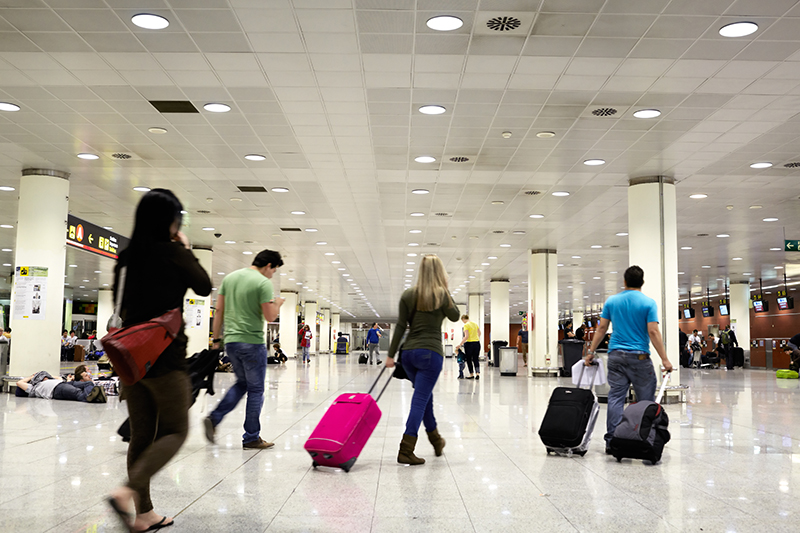Bio-degradable cards
Every card imaginable!
|
Bio-degradable cards Every card imaginable! Understanding Disability ID Cards in the UK A Comprehensive Guide
Acquiring Disability ID and Benefits in the UK
Is There a Disability ID Card in the UK?It can be confusing, but the short answer is no, the UK government does not issue one single, official disability ID card that everyone can use everywhere. People often expect there to be one card, like a driving licence, but the system doesn’t work that way. Instead, your eligibility for support is usually proven by a collection of documents or specific cards designed for one purpose. The most common of these are:
There are also private schemes that have created cards, such as the Access Card. While not a government card, it’s becoming much more accepted by cinemas, theatres, and theme parks, which can make things easier when trying to get a discount or a companion ticket.
How to Get a Disabled Card for Parking in the UK?The 'disabled card for parking' is officially called the Blue Badge. It’s issued across the UK and is a vital tool for many people, allowing you to park closer to your destination, which helps massively if walking is difficult or painful. To get a Blue Badge, you must apply through your local council. The process usually involves:
It is important to remember that the Blue Badge scheme is managed by local councils, and they have the final say on who is eligible.
How to Get a Government Disability Card in the UK?Since there isn't one general government-issued card, the most effective way to secure the specific cards that are available is by applying for the disability benefits that prove your eligibility. The key cards available through government-backed schemes are:
If you are successful in claiming one of the main disability benefits—PIP, DLA, or Attendance Allowance—you will receive an official award letter. While this is not a plastic card, this letter is a government-issued document and is often the best and simplest proof you can offer a third party (like a local authority, venue, or service provider) that you have a registered disability.
What Are the Benefits of a Disabled Card in the UK?The cards and passes you can get are designed to remove barriers and make daily life less stressful and costly. They help you to maintain independence and get around more easily. Here are the main benefits you can expect from these cards:
Is Disability Allowance Means Tested?This is one of the most confusing parts of the benefit system, so it’s completely understandable to be unsure. The short answer is: the key disability payments are not means tested, but many other benefits are. Let’s break down what ‘means tested’ actually means and why it matters to you.
What Does ‘Means Tested’ Mean?It means the government will look at your financial situation to decide if you are eligible for the benefit. They will check things like:
If your income or savings are too high, you might not get the benefit, or the amount you get might be reduced.
Which Disability Benefits Are Not Means Tested?The most important thing to know is that the main payments designed to help with the extra costs of being disabled are not means tested. They are based only on the impact your condition has on your life. These non-means-tested benefits are:
This means you could have a significant amount of money in savings or a high-paying job, and you would still be eligible for PIP or Attendance Allowance if your disability meets the criteria.
Why Does the Difference Matter?The difference is important because it means:
Which Other Benefits Are Means Tested?You should be aware that most general income-replacement benefits are means tested. This includes:
If you apply for these, your financial situation will be taken into account. 
Mobility and Travel for Disabled Individuals
How Do I Get a Disability Travel Card?The 'disability travel card' usually refers to a few different things, mainly concessionary bus passes or a Disabled Person’s Railcard. You need to look at what type of travel you use most often.
What Illnesses Qualify for Disability Living Allowance?It’s important to understand that Disability Living Allowance (DLA) is not based on a list of specific illnesses. The Department for Work and Pensions (DWP) doesn't assess the condition itself, but rather the care and mobility needs that arise because of that condition. DLA is only for children under 16 in the UK. (Adults claim Personal Independence Payment or Attendance Allowance). To be successful with a DLA claim, you need to show that your child needs significantly more care, attention, or supervision than a child of the same age without that condition, or that they have difficulties with walking and getting around. The conditions that can lead to a successful claim are incredibly broad and include:
The key when filling out the form is to focus on the daily reality of the illness—how it affects things like washing, dressing, communicating, needing supervision, and getting around. For example, a child with severe eczema might qualify for the care component because they need constant supervision to stop them scratching, which is extra care compared to another child their age.
Where Can You Not Park With a Disabled Badge?The disabled badge, or Blue Badge, gives you fantastic access, but it doesn't mean you can park absolutely anywhere. It's really important to know the rules to avoid getting a parking ticket. In general, Blue Badge holders are not allowed to park in the following places:
For areas with yellow lines, a Blue Badge usually allows you to park on single or double yellow lines for up to three hours, as long as you are not causing an obstruction and the 'No Loading' restrictions mentioned above don't apply. You must display your badge and the clock correctly.
How to Claim Disability?The process for claiming a disability benefit in the UK is handled by the Department for Work and Pensions (DWP). The application process is detailed and can take some time. The main benefit you’ll be claiming depends on your age:
Here are the basic steps for claiming PIP (the process is similar for DLA):

Understanding and Recognising Disabilities
Is Mental Illness a Disability?Yes, absolutely. In the UK, mental illness is fully recognised as a disability, but whether it qualifies you for legal protection or financial support depends on the severity and duration of the condition. The most important legal benchmark is the Equality Act 2010. Under this Act, a person is classed as disabled if they have a physical or mental impairment that has a substantial (more than minor or trivial) and long-term (lasted or is likely to last 12 months or more) adverse effect on their ability to carry out normal day-to-day activities. This means that conditions like severe depression, anxiety disorders, bipolar disorder, schizophrenia, and PTSD can all count as a disability. The focus is always on the effect of the condition, not the name of the diagnosis. For example:
When it comes to financial help like Personal Independence Payment (PIP), the DWP uses a points system to assess how your mental health affects tasks like communicating, engaging with others, planning a journey, and managing money. It is crucial when applying for any support to explain the impact of your condition in clear, simple, practical terms.
How Many People Are Disabled in The UK?Disability is a lot more common than many people realise. Current estimates suggest that over 14 million people in the UK are living with a disability. To put that into perspective, that’s about one in every five people in the country. This huge number shows that disability is a diverse experience. When you hear the word 'disabled', you might picture someone using a wheelchair, but the reality is much broader. This total includes people with:
The majority of disabilities are non-visible (sometimes called hidden disabilities). This means that you can’t tell someone is disabled just by looking at them. Recognising this diversity is important, as it helps people understand why support and accessibility measures are needed everywhere, not just for specific, visible conditions.
Can You Claim Disability and Still Work?Yes, absolutely. The government is keen to point out that disability benefits are there to help with the extra costs of being disabled, and they are not intended to stop people from working. The benefits you receive for the cost of living with a disability—like Personal Independence Payment (PIP), Disability Living Allowance (DLA), and Attendance Allowance—are not affected by whether you work or how much money you earn. They are not means tested, so your income is irrelevant to these payments. You can work full-time, part-time, or be self-employed, and it won't stop these payments. The situation is different for income-replacement benefits, which are designed for people who can’t work or are on a low income:
The key is to always check the rules of the specific benefit you are claiming and notify the DWP about any change in your work situation.
What Is a Learning Disability?In the UK, a learning disability is defined as a reduced intellectual ability that causes difficulty with everyday life skills, such as managing money, communicating, and socialising. These difficulties are usually present from childhood and affect the person for their whole life. It is really important not to confuse a learning disability with a learning difficulty, as they are two separate things:
People with a learning disability often need more support to manage their lives and live independently, and there are many specialist services and charities that focus on helping them and their families.
What Disabilities Are Covered Under the Equality Act 2010?The Equality Act 2010 is the main piece of anti-discrimination law in Great Britain. Its purpose is to legally protect people with a disability from unfair treatment in all areas of life, including at work, in education, and when accessing services like shops, banks, or transport. The Act covers an extremely broad range of conditions, and it defines disability using a two-part test:
Crucially, the Act also provides protection for certain conditions from the point of diagnosis, such as cancer, HIV, and multiple sclerosis. The Act places a duty on employers and service providers to make 'reasonable adjustments' to their policies or premises to ensure a disabled person is not at a disadvantage. This could mean adjusting working hours, providing special equipment, or changing the way a service is delivered. It is a powerful law that helps ensure disabled people have equal opportunities and protection from discrimination. 
Disability in Context: Definitions and Legalities
What Is a Physical Disability?A physical disability is any long-term condition that affects a person’s body and how they move or function physically. It affects things like your mobility (getting around), dexterity (using your hands and fingers), your coordination, or your stamina (how long you can maintain an activity). It can also include conditions that affect your internal organs, breathing, or circulation. Physical disabilities can be present from birth or can be acquired later in life due to an injury, illness, or gradual health condition.
The person may rely on specific aids to manage their day-to-day life, such as wheelchairs, mobility scooters, crutches, or adaptive equipment to help with tasks like cooking or dressing. The key is that the disability puts up physical barriers to participating in daily life.
What Is Cognitive Disability?A cognitive disability is one that impacts how your brain processes information, making it harder to think, learn, remember, and solve problems. It affects your mental processes and can significantly disrupt an individual's ability to perform everyday tasks. This is an umbrella term that includes conditions which affect your:
A cognitive disability can be caused by various factors, including traumatic brain injury (TBI), stroke, conditions like dementia (e.g., Alzheimer's), or certain developmental disorders. It is often a "hidden" disability, meaning it’s not visible from the outside. People living with this may need simple, clear instructions, a calm environment, or extra time to process information when dealing with services or information.
What Is the Definition of Disability?In the UK, the most important definition of disability—the one that provides you with legal protection—is found in the Equality Act 2010. This legal definition is what is used to determine who is protected from discrimination in employment, education, and when accessing services. The Act states that a person has a disability if they have a physical or mental impairment that has a:
It’s crucial to remember that the law focuses on the impact of your condition on your life, not the specific medical diagnosis itself. For instance, a condition that is well-controlled by medication and doesn't affect your daily life may not meet the legal definition, but a less common condition that leaves you housebound might.
What Is the Definition of Disabled?The definition of "disabled" refers to individuals who meet the criteria of having a disability, as laid out in the Equality Act 2010. However, the term has a much deeper meaning rooted in the Social Model of Disability. The Social Model suggests that people are not disabled by their medical conditions, but are disabled by the barriers in society that exclude them.
The term "disabled" is often preferred by advocacy groups because it acknowledges that the lack of accessibility in the world is the main source of disadvantage, not the impairment itself. It is an inclusive term that recognises the diverse experiences and challenges faced by people with different types of impairments.
What Is the Politically Correct Term for Disabled?When talking or writing about disability, the most important thing is to be respectful. There isn't one perfect term that everyone agrees on, as people in the disabled community have different preferences, but here is the general approach:
For general use, "disabled person" or "person with a disability" are both widely accepted and appropriate. The simplest rule is: if you are speaking to an individual, it is best to ask them what term they prefer. The key is always to avoid outdated or offensive terms like 'handicapped', 'cripple', or 'wheelchair-bound'. Updated December 2025
The Benefits of Our UK Disability Identification CardsHere at The Card Project UK, we know that proving you have a disability shouldn't be a struggle every time you leave the house. We also understand that one card can’t work for everyone. That’s why we created a range of UK Disability Identification Cards. Our simple goal is to give you an affordable, easy-to-use tool that helps you get the assistance you need quickly and with confidence. Just to be clear: Our cards are not official government ID. They won't replace your Blue Badge or that official letter you got from the DWP. Think of them as a handy, professional communication tool for everyday life.
Why Our Cards Work So WellWe built our range to tackle those awkward, everyday moments head-on. While they aren't official ID, their quality and variety make them incredibly effective.
Our range of Disability ID Cards is ultimately all about making your day-to-day life a little easier, giving you a reliable and respectful way to communicate your need for support.
© 2024 The Card Project Uk Ltd
VAT: 453 2087 06
|